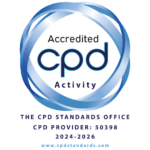Is Narcissism the problem?
Key knowledge for all therapists and counsellors
Could narcissistic behaviours be the cause of difficulties in a relationship? This session looks at what narcissism is and isn’t, what a relationship with a narcissist might look like, the additional challenges it brings – and what you can do to help…
Course Factfile
-
Accredited CPD: 4 hours
-
Length: 8.45am–1.00pm (GMT)
-
Tutor: Jennifer Broadley
- Price: £115 per person
Includes course notes and access to a recording of the event
£115.00
Book your place
Select a date
Extremely informative and in-depth... today was beneficial to my individual client work too
Ali Jacobs, Psychotherapist
Live online training – Join Jennifer Broadley on Tuesday 17th March for this 4-hour jam-packed session, with plenty of opportunities to ask questions. Once you’ve booked, we will send you email confirmation – your Zoom link will be sent the day before the event.
BONUS RECORDING – the training is recorded so you also get a recording for 2 weeks afterwards to maximise your learning.
UPDATE – Please register your interest below and we’ll let you know as soon as another date is available.
This online training session gives you time to look in depth at narcissism and what a relationship with a narcissist might look like – whether between couples, family members, friends or colleagues
In most cases, applying the skills and techniques learned in the Couples Therapy Online Masterclass is all that’s needed to help a couple move forward in their relationship. But sometimes additional knowledge is needed, as in the case of relationships where narcissism is a suspected factor, to help a therapist assess more quickly and meaningfully the relationship dynamic and specific challenges involved, thus allowing them to help those involved to more effectively find a constructive and compassionate way forward and out of their current difficulties. What you will learn >
Why take this course
 The term ‘narcissist’ is often bandied about and narcissism is frequently covered in the media – but is this language over-used or misused? It’s great that awareness is being raised generally about narcissism and the impacts it can have on a relationship, but it’s important to be well informed. As a result of this increased awareness, more people are seeking information and answers to their own experiences, as well as about the causes of their own relationship difficulties and what they can do about them. As part of that process they may well seek some counselling or therapy so it’s important that, as therapists, our knowledge, skillset and stories are as up-to-date and relevant as possible to best serve our clients.
The term ‘narcissist’ is often bandied about and narcissism is frequently covered in the media – but is this language over-used or misused? It’s great that awareness is being raised generally about narcissism and the impacts it can have on a relationship, but it’s important to be well informed. As a result of this increased awareness, more people are seeking information and answers to their own experiences, as well as about the causes of their own relationship difficulties and what they can do about them. As part of that process they may well seek some counselling or therapy so it’s important that, as therapists, our knowledge, skillset and stories are as up-to-date and relevant as possible to best serve our clients.
If you already work with couples, in your private practice or employed role, and you want some more detailed insight into narcissism and how to spot it, as well as some of the additional relationship challenges it brings, this live online training is for you…
SAVE £30 – when you book all 3 couples therapy related courses together. (Discount applied at checkout.) NB does not apply during SALE.
Jennifer gave a very informative response to my specific request for information relating to narcissism
Pauline, therapist attending Jennifer's 'Couples Therapy' course
What will you learn
- What narcissistic personality disorder (NPD) is – and what the criteria for clinical diagnosis are
- What specific unkind or manipulative behaviours in relationships can be classed as narcissism – and when should we really not use that term
- Why the reports of narcissistic emotional abuse in relationships are significantly on the increase – and how (or whether) this parallels family, relationship and societal changes
- If it’s not narcissism, what else could be causing the dysfunctional relationship pattern?
- The truths and myths of the nature vs nurture debate in relation to NPD
- How to spot narcissism when both partners are in your therapy room
- How to spot NPD when only one partner is in your therapy room
- Why it’s usually the co-dependant partner, rather than the one with narcissistic personality traits, that instigates therapy
- How to support an abused partner to exit a narcissistic relationship – OR to remain in it if he/she won’t or can’t leave
- How to identify which emotional needs are not being met for one or both partners of a couple – and strategies to quickly change that
- Tools and checklists to keep your clients emotionally and physically safe as you support a rise in their self-esteem, self-compassion and emotional needs being met more healthily
- The common language (media and social media) for NPD-related behaviours
- How to raise children (separately or together) when one parent has NPD – the critical Do’s and Don’ts
- Additional resources to steer your clients towards – plus recommended reading for you as a therapist
- And more…
You will also have plenty of opportunities to ask questions and benefit from those asked by other people.
Who is this course suitable for?
- Anyone who has previously attended our Couples masterclass 1-day workshop (live or in person)
- All therapists and counsellors – relationship difficulties are a common reason people seek help, so it’s useful to have a good understanding of what a narcissistic relationship might look like, whether between couples, family members, friends or colleagues
- Anyone working with couples, perhaps as a relationship counsellor or through couples therapy, who would like a better understanding of narcissism and NPD, and ideas for helping couples deal with the challenges these bring.
- Anyone interested for personal reasons, who appreciates that the content is primarily aimed at therapists and counsellors.
Please Note
This course is not a substitute for therapy.
 This course has been independently accredited by the internationally recognised CPD Standards Office for 4 hours of CPD training.
This course has been independently accredited by the internationally recognised CPD Standards Office for 4 hours of CPD training.
On completion of this training you’ll receive CPD certificates from the College and the CPD Standards Office.
Register your interest
If you can’t make this date, complete the form below and we’ll email you when another date becomes available.
Tell others about this course
Jennifer Broadley spoke from such a helpful experience and I could have listened to her all day! She made the content enjoyable and I now feel confident to push forward with my couples work.
Kerry Coles-Poyser, Person Centred-Counsellor






Very insightful and informative. A good pace to ensure learning was taking place and that questions could be asked for further information and to bring clarity to the topic.
I found the delivery extremely poor, with hesitation, change of sentence direction, and repetition being pervasive. I also thought the morning content poor with only general therapeutic guidance for the topic.
Well paced, insightful and useful. Thank you Jennifer. I feel that I got a great deal from this short course – both as someone who has lived close to NP for many years, but also how to begin to approach things if I ever encounter NP with clients when trained as an HG Therapist.
Very detailed and packed 4 hours. I’ve gained so much more understanding about narcissism and can definitely apply this to my counselling sessions.
A must-have for any therapist! A brilliant course – lots of practical tools and essential knowledge.
I found this course so helpful in understanding narcissistic traits and the supply. Also, how to potentially spot this in sessions and bring awareness. So valuable in clients to understand their ow emotional needs and then encouraging them to hold strategies when dealing with narcissism.
Jennifer very skilfully enabled participation of all present, with a range of experience in narcissism. There were valuable new insights to be gained – clearly taught. There was also a growing sense of compassion amongst those present – dealing with a difficult topic. Extremely valuable training at a time when there is an increasing need to be narcissism-aware. Thank you so much.
Amazing teacher and subject. A bit of a shame as I would have liked to spend more time on solutions and therapy techniques, more than narcissist profile.
Jennifer gave us a great deal of useful information. I came away with much more clarity on the differences between narcissistic personality traits and autism. A thoroughly worthwhile discussion that included care for the therapist.
Thank you, the course was very informative and interesting and a great awareness of different types of narcissism behaviour.
I found the course very informative and managed to get a lot of information for the 4 hours or so it was on. It helped that I had read the course notes which had been sent out ahead of time. Jennifer delivered the course so well, making the information very tangible and relatable too. It was quite a difficult subject that some people had personal experience of, and I think this was dealt with sensitively.
Thank you – it has been so insightful. I wish I had attended live. As a survivor of living with a partner of NFD, who I left 27 years ago when my son was 5, after 3 attempts I went into a women’s refuge and the journey from there was everything described in the course – recovery, parenting. Not as much knowledge or support then – I learnt a lot of managing this relationship as trial and error. I have gone on to run my own private practice to educate and support clients with NPD. This course has given me the courage, confidence and skills set to put on my profile as narcissist aware. My passion is helping clients in awareness of this.
I do not work with couples but do work with partners who are struggling in a relationship. From our sessions I have with them, this course has helped me to see patterns of events and issues that clearly point towards narcissism. It has been really useful for me to enable me to recognise things, and I found myself thinking, ‘that’s what’s happening for xyz’. I feel more confident with the skills I learnt today to be able to take them back to my sessions and help my clients with the gained knowledge. Often the partner who comes to see me doesn’t see what’s going on – they have no understanding. I hope to give them the skills to be able to recognise what is going on for themselves and working with myself to find a way forward for a better life.
It was really helpful to understand how narcissism might manifest and show itself in couples therapy and understand how to approach it.
Fascinating and clearly and concisely delivered. Again, loved how it was explained in line with RIGAAR which helps as a format and structure to follow. Really sound advice as to how to prepare a client to stay or leave a narcissistic partner, but also really appreciated the understanding offered to someone having acquired this disorder.
Very informative course, with additional resources, in the form of links and book recommendations provided for further reading. Jennifer delivered the course professionally and the Power Point slides were very good.
I really enjoyed this course and would highly recommend it. The course provided such valuable insights and practical tools to navigate challenging dynamics, and I left feeling more equipped and empowered. I especially appreciated the focus on techniques like Grey Rock – a brilliant way to maintain emotional boundaries and protect your peace – and Parallel Parenting, which is a game-changer for managing co-parenting in a healthier, more structured way. If you’re struggling with these dynamics or want to learn how to navigate them better, I highly recommend this course.
Fantastic – so much information and so well presented – makes we want to learn more. Thank you.
It was good to have validation that the work I am doing with clients managing NP ex-partners is correct and compliant with the HG model and approach.
The presentation was very clear and the facilitator knew her subject matter well. It was informative and well informed and I now feel more confident and competent to support those impacted by narcissistic behaviours.
Very informative and well-researched. Worked through the subject with compassion and understanding. Some very valuable tools for use in the therapy room.
I found this course to be well structured and informative. It was helpful and reassuring to have a therapist’s experience of working with this client presentation normalised and to be introduced to some helpful strategies and resources.
Excellent – a must have in your tool box
Having attended both the Couples Masterclass and the Couples Therapy: Neurodiversity and Relationships, I signed up for this course as I wanted to feel as ‘skilled up’ as I could be, before venturing into the world of couples counselling. The course did not disappoint! All information was given in a very clear and concise way with psycho-education, together with clear strategies to adopt when working with clients, where one potentially has Narcissistic Personality Disorder. I would highly recommend this course to any couples counsellors or anyone considering becoming a couples counsellor.
Easy to listen to and follow and very interesting. It covered all the bases for me. Hearing about real cases was very helpful and informative. I now feel much more comfortable about working with any client who is dealing with a narcissistic partner. Thank you so much.
I found the course immensely informative and thought provoking. The presentation of the course content gave a great insight into how deeper layers of human behaviour can be intricate and complex. Jennifer’s brilliant portrayal of how to approach various circumstances was very helpful.
Excellent – a must have in your tool box
I found the half-day course to help identify what narcissism may look like in the clients I am working with. I found the early session interesting as we broke into breakout rooms to discuss what we learned. The afternoon was less helpful as I was being spoken to for an hour and a half.
The course was very informative – the notes are very helpful.
Very good content and very good explanations and examples from the tutor. It gave me a much better understanding of narcissism and how to manage it in a couples setting.
It was highly informative.
I have been in practice for thirty or more years so some of the material was familiar to me. Nevertheless, it was refreshing to see so much covered in a short space of time and good to have some new ideas focused on a, currently, very relevant topic.
Thoroughly enjoyable – plenty of information givens. Thanks.
Today was extremely informative and in-depth. I found as with the couples all day class I attended last month that I came away with a greater knowledge and understanding of couples work, but today was beneficial to my individual client work too. Jennifer is a clear and engaging tutor who gives appropriate examples to enhance understanding. I would highly recommend this course to any therapist wishing to achieve a greater understanding of how to recognise and work with clients or partners of people who have NPD.
Jennifer’s presentation opened up many areas of working with couples of which I had only been dimly aware previously. Not only was the material clearly set out, along with useful course notes, but there were good examples and insights into the ways we as therapists can come to see this trait at work, and how to best approach it.
Extremely informative and useful for practice for work with couples, families and individuals
Really valuable context which added to my awareness around narcissism in couples work, what I may see in the therapy room, impact on partners and practical and useful tools to help partners identify and recover from narcissistic abuse.
A concise, well-balanced and really helpful look at the influence of narcissistic traits in couples work, as well as ways of approaching the issue. Jennifer presents the ideas clearly in a relaxed setting.
Thank you – I really appreciate your knowledge, clarity and compassion for what can be quite a complicated and painful experience for clients and couples.
Jennifer delivered a very well thought out course on how narcissism can become a problem in couples, how it arises, and what can be done to help our clients safely address the issues. The NP is unlikely to turn up or participate positively in a therapy session, so focusing on the ‘survivor’ was discussed at length. The course has gone a long way to help me become ‘narcissism aware’.
A truly fascinating training session. Well structured and packed with content and insightful case studies. I feel I have a much deeper and clearer understanding now of narcissism, the commonly occurring traits and the effects of narcissistic behaviour on those around them. I expect I will find the practical advice on how to work with couples where narcissism is a factor extremely useful. Thank you.
This was a really thought-provoking, well spent morning. As the course developed I became increasingly aware of several clients I’ve seen over the years who have displayed narcissistic traits, and I’m now questioning how I might have handled some of those sessions differently. I very much appreciate Jennifer’s expertise in this subject and have left with a wealth of information, a curiosity to learn more, and much food for thought. A very big thank you HG.
This course was very informative. It was helpful in understanding narcissistic behaviour/traits in clients and/or their partners. The course notes are extensive and cover all the main points and will be a great reference for the future.
The course was very engaging and I really enjoyed the way Jennifer brought real life aspects (case information) into the room. The learning material was contemporary and I could see how I would be able to implement this straight into private practice. I have never attended a Human Givens course before and am pleasantly surprised. I feel Jennifer has a great approach to teaching, her pace and interactions were well timed.
Beginning with the importance of relationships, the uniqueness of each relationship and that without health connections in our lives our emotional needs are not met was an excellent starting point. It provided a foundation for the framework that followed and was built on by the detail of each aspect from the nine emotional needs, resources to meet our needs, then the introduction to narcissism, how it is formally defined, other types of narcissism and its characteristics, narcissistic supply, uncertainty about causes, affects more males than females, talk therapy treatment rarely agreed to by the narcissist. This is then followed by the impact on relationships, friendships, partnership or marriage, strategies outlined to remain or leave and how to relate to the narcissist using the Grey Rock Method, regarding children the best choice being parallel parenting. Despite the difficulties recognising that narcissism is a disability can help to have compassion for the narcissist and that does not mean being a doormat.
Very informative about a subject that I have had a lot of personal experience of.
I really enjoyed the course today and feel that this added to my knowledge of narcissism. It has also really got me thinking about wanting to do couples therapy.
Really good overview of this subject.
I very much enjoyed this workshop. The tutor was, as usual, very generous with her knowledge. A very comprehensive workshop.
Excellent informative and interesting course. Jennifer has an easy, relatable style and she makes the material very accessible. Would recommend.
This is an absolutely fascinating subject and a must for anyone offering emotional support on any level to individuals, couples and families. Jenny is incredibly knowledgeable and makes the material very easy to absorb and understand.
Because narcissism is bandied about so much these days, often not used in the right context, I needed to find out for myself exactly what it is. The ‘Is Narcissism the Problem’ course was super helpful in explaining the idea of it being on a spectrum, helping to explain that narcissistic tendencies do not make someone a narcissist. Very helpful in showing how to help someone living with a narcissist to handle the relationship as effectively as possible and be a supporting influence in that person’s life. Thank you.
I was apprehensive about the live Zoom training, however I need not have been. The pacing of the day was perfect, with clear explanations of each section. In addition, everybody was given time to ask questions and share their thoughts or, haha, moments of clients they may have worked with. I was unsure if my understanding of narcissism or NPD was correct, and I wanted clarity around this commonly used labelling of some people’s behaviours. The course gave a clear outline of the personality traits a narcissist has and how as a therapist we can support those that are identifying as being in a relationship with one such person. I have come away feeling informed around the subject of narcissism and ways to support clients that are in a relationship with one such person. Highly recommended.
Excellent overview, with plenty of real life examples. Given the shorter study day, would have preferred less on emotional needs and resources, perhaps this could be pre-course essential reading.
I thoroughly enjoyed this course. It was clear, concise, informative and well presented by Jennifer. This was my first time with Human Givens. I intend to do many more. Arlene was also very helpful bringing clarity to a question I had.
Was a very useful refresher on narcissism, having read a book about it and recognised its significance in several cases I have dealt with. Was especially good to think about in the context of emotional needs not being met in each member of the couple.
Another clear and focused course from Jennifer. Packed with lots of useful material and things to think about.